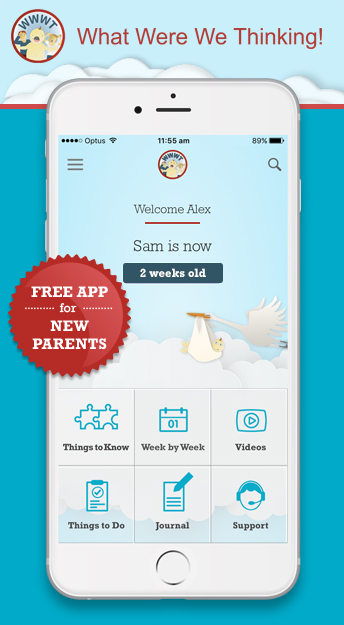Honouring what happened when your baby was born
By Jane Fisher

Last week, there were two articles in major Australian publications that addressed women’s experiences of birth. First, in Sunday Style (2/8/14) Katherine Catchfield argued that announcing over social media that someone has had a “natural” birth is putting pressure on mothers, causing them to feel ashamed if their own experience of birth involved pain relief or interventions. “Baby bragging”, as Catchfield calls it, can perhaps unintentionally contribute to the “shaming” of parents who have had different experiences. She writes, “people aren’t just wanting to hear that I’ve given birth, but also how I’ve given birth – and judging me for the choices I’ve made along the way.” On the other side, in comments to the Australian Women’s Weekly, Rebecca Judd responded to Ms Catchfield’s piece, arguing that it was she who was being judgemental. “A woman who gives birth naturally and breastfeeds her child should be celebrated not shamed".
There are some important things to remember as we make sense of what happened when our baby was born. First of all, birth is a process over which we have little control. Most women want to give birth without interventions, supported by their partners, to greet their baby in privacy and to breastfeed easily. However, despite careful preparation it doesn’t always go this way. Labour can begin prematurely, babies can be positioned in ways that prevent unassisted birth, women can become ill during pregnancy and these mean that interventions can be required. It is rarely a question of what is or is not chosen, much more commonly it is a matter of accepting professional recommendations.
Birth is an experience which women often remember in detail – research shows that even twenty years later what took place can be recalled accurately. It is easy to feel confident and satisfied if birth was as you had hoped it would be. It is much harder if you experienced unwelcome intrusive procedures, if pain was severe and overwhelming, if you felt you had to accept recommendations that you would prefer not to have and if you were separated from your baby. Far from a straightforward alternative, caesarean birth involves pain, disruption to the first meeting with your baby and an extended recovery.
So, while both authors want to reduce judgement and shame and their opinions represent common views, neither acknowledge the limited power we have to influence what happens during childbirth. It is important to remember that during birth we are vulnerable and dependent on health care providers and hospital systems who are seeking to assure that a healthy baby is born.
Each of us needs to honour what happened when our baby was born. It can be difficult to put this into words especially if our experiences were uncommon and others do not understand them. It can be helpful to talk the events over, to ask your partner to help fill in the ‘missing pieces’ or parts you can’t recall. Talking with your partner (or a close family member or friend) about how you felt during the birth and about how you felt when you first held your baby can help. If others appear not to understand or to trivialise your experiences, practice calm simple explanations that might improve their awareness.
The page “But you have a healthy baby” is a great tool for working out how you and your partner feel about your baby’s birth and can honour what happened.
Jane Fisher is Clinical and Health Psychologist and Professor of Women's Health. She has been a sessional consultant to Masada Private Hospital Mother Baby Unit since 1996. Jane's research focuses on understanding and addressing the factors that influence women's and men's health and wellbeing during pregnancy and the life phase of caring for young children.
Posted in: A new reality Baby 0-4 weeks Late pregnancy Parenting Experts Your needs








